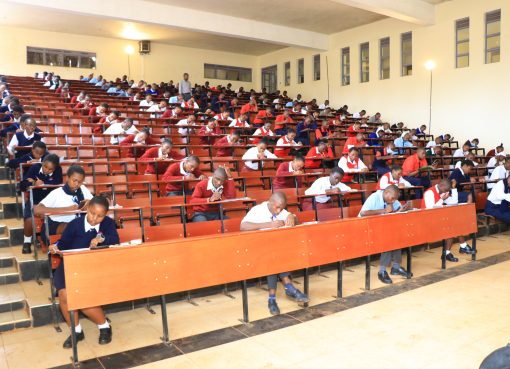The County Government of Nakuru is working on a sensitization programme to be rolled out in schools and tertiary institutions as teaching approaches to help the young contribute towards mitigation and adaptation to climate change.
County Executive Committee Member (CECM) in charge of Water, Environment, Energy, Natural Resources and Climate Change, Dr Nelson Maara said the campaign targets the youth to equip them with relevant knowledge on carbon neutrality, climate change mitigation and adaptation that will help promote sustainability of the available resources in the County.
He said children had the capacity to grasp and internalize the implications of global warming and contribute to climate action early adding that education had a key role in imparting relevant knowledge, skills and competences to address the global warming crisis.
“Learners are important stakeholders on climate change because climate has an impact on our education system. Student enrolment is low in parts of sub-Saharan Africa severely affected by harsh environmental changes. Failure to satisfy basic needs such as food, shelter and clean water is a leading cause. Due to disputes over pasture and water, students from nomadic communities can’t go to school,”Maara said.
“Kenya has made strides in its education system with the free primary, subsidized secondary and tertiary learning. But since climate change has not been adequately mainstreamed into the curriculum, developing relevant knowledge and abilities to adapt to it is a priority,” said Maara.
Maara noted that the initiative will also be crucial for climate change practitioners to help them understand devolved climate finance by pushing for community-led adaptation measures.
The CECM spoke when he hosted a delegation from Team Environment Kenya who are exploring ways of partnering with the County Government on climate change mitigation.
He said globally, governments have recognized their responsibility to prepare not only young persons but also society to contribute to the mitigation and adaptation to climate change.
Maara noted that uunderstanding climate change causes and impacts was the first step towards shifting mindsets, exploring ways of mitigating its effects and adapting to its unavoidable consequences.
He said that educational facilities have a significant role to play in educating various groups including environmentalists, climatologists, community organizers, corporate managers, scientists, policymakers and the community about actions that could be taken to mitigate and adapt to climate change.
The CECM at the same time urged corporates and philanthropists to help in establishing and supporting environmental clubs across schools. “Through the clubs, students will have an opportunity to gain knowledge and skills needed to support climate adaptation projects and innovations necessary for the Kenyan ecosystem,” he said.
“In responding to climate change, we must look at the world through our children’s eyes. Let us take time to understand what matters to them, and what they want as they grow up,” Maara added.
Maara expressed concern that the global crisis that is climate change had the potential to reverse the gains in child development and posed unprecedented dangers adding that children worldwide, remained vulnerable to poorly mitigated threats closely linked to climate change including hunger, disease and lack of access to education and jobs.
He said that one of the worst droughts ever was making children and families in the Horn of Africa to go hungry while several countries in the West African Sahel region have their worst food crisis in a decade due to droughts and floods.
He expressed regret that climate change was one of the harshest drivers of inequality, leading to increased vulnerability of children, especially those without social safeguards and safety nets.
Maara said that younger voices in climate change decision-making should be given greater prominence and solutions presented by young people incorporated in policy and decision-making. He challenged the society to join hands in environmental protection and climate change, to deliver a green sustainable future.
In May last year, the Ministry of Environment, in partnership with that of Education, recognized that there was a significant emissions gap between the Paris Agreement’s aspirational objectives and real-world commitments and actions. They developed guidelines for mainstreaming of climate change in curricula at all levels of education and training.
In 2010, the government launched the National Climate Change Response Strategy, which enhanced the understanding of climate change addressing its concerns on communication, education and awareness. It also developed the Climate Change Act 2016, which provides guidance and priority actions in addressing climate change, taking into consideration the Kenya Vision 2030 and global goals.
Currently, Kenya has set aside about Sh2 billion for the Drought Emergency Fund, which caters for resilience response and recovery. All the 47 counties are expected to allocate about two percent of their annual development budgets on investment and projects that enable communities to build resilience to the impact of climate change.
By Esther Mwangi and Branice Amunga




